We encountered a lot of weird and wonderful tech at Mobile World Congress, currently coming to a close in Barcelona, but as concept smartphones go, Motorola had perhaps one of the most head-turning offerings on the show floor, with its first rollable concept.
Unveiled alongside a rollable laptop concept from parent company Lenovo – which allows for better multitasking by effectively doubling the height of the display – the Motorola rollable concept arrives as an impressively compact little Android smartphone, but at the double-press of a button on its right side, that 15:9, 5-inch display grows to a far more substantial 22:9, 6.5-inch panel.
You might wonder why Motorola thinks this is a concept worth investing research and development dollars into, but it’s really the company’s way of showing that, although foldables – like its own Razr 2022 – do deliver on the promise of a more compact full-screen smartphone, perhaps there’s more than one way to address this challenge.
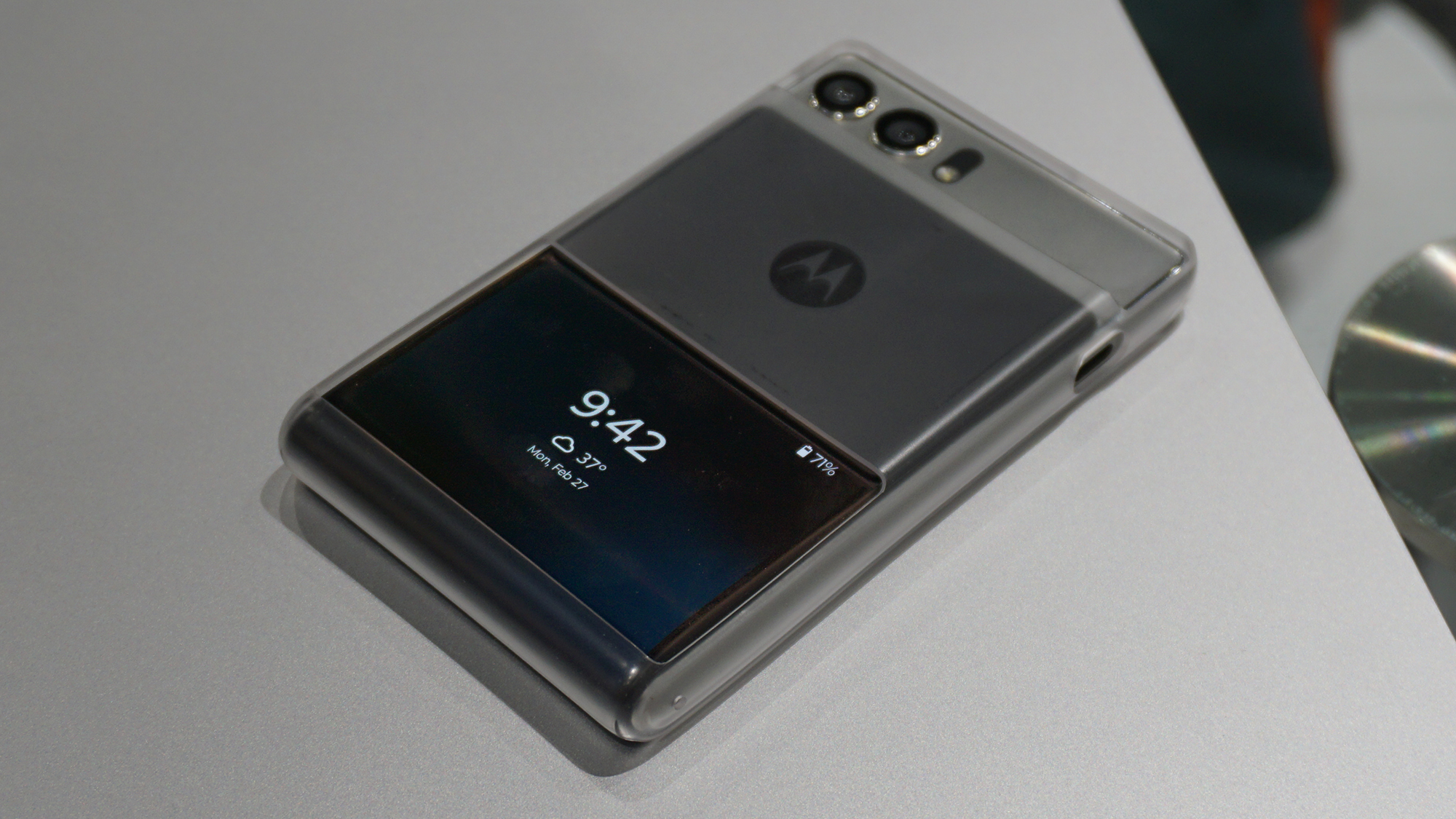
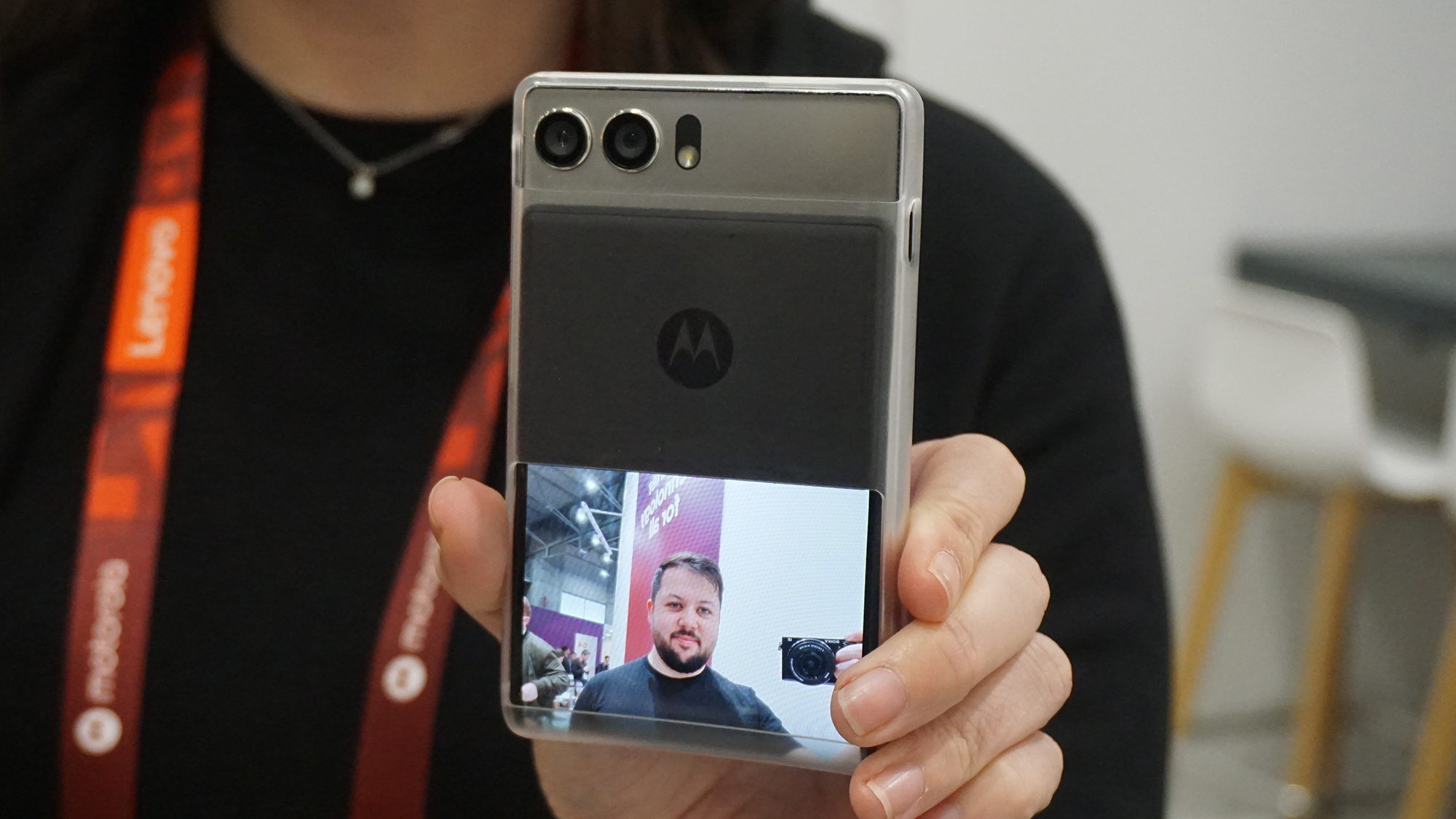
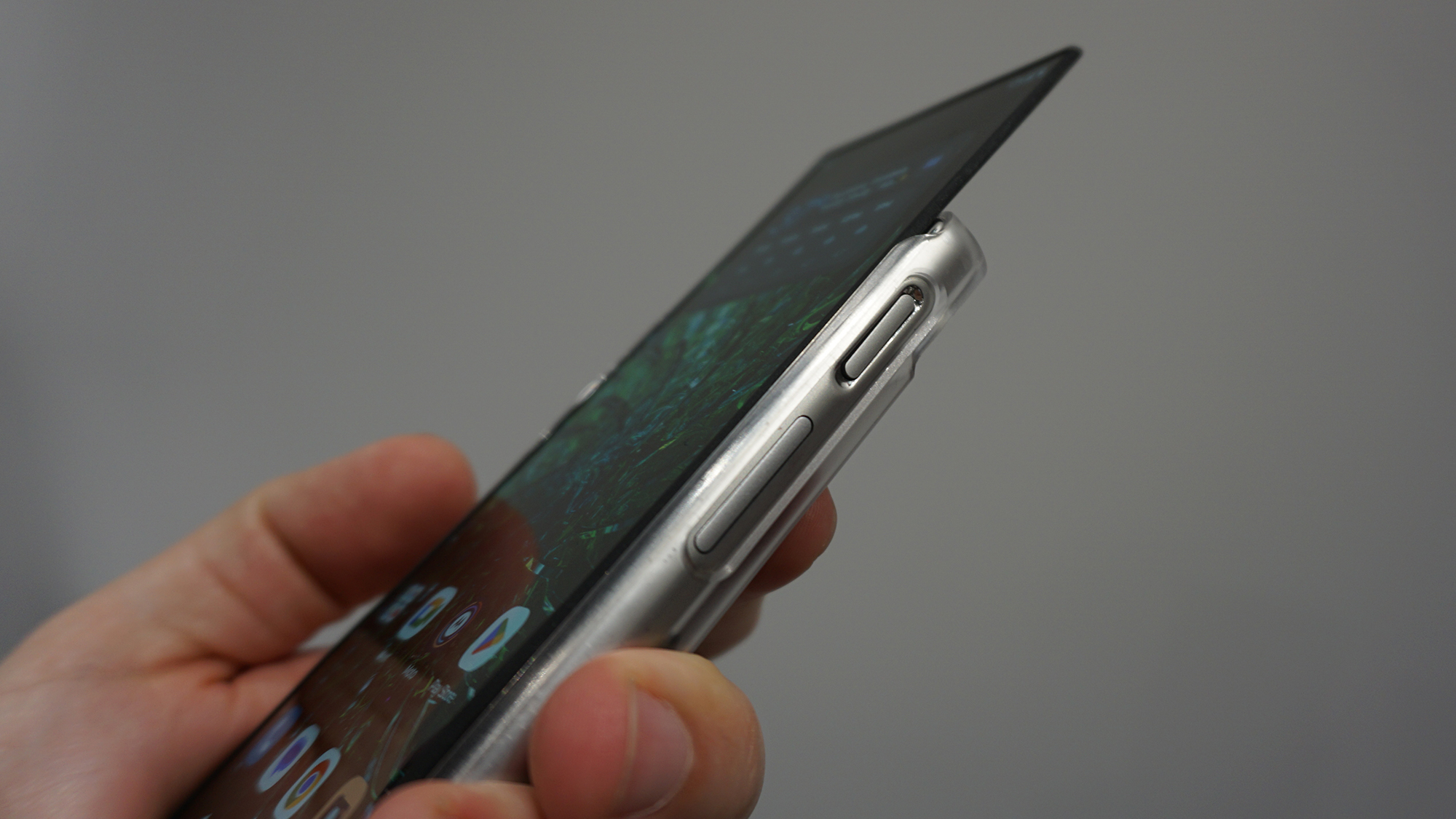
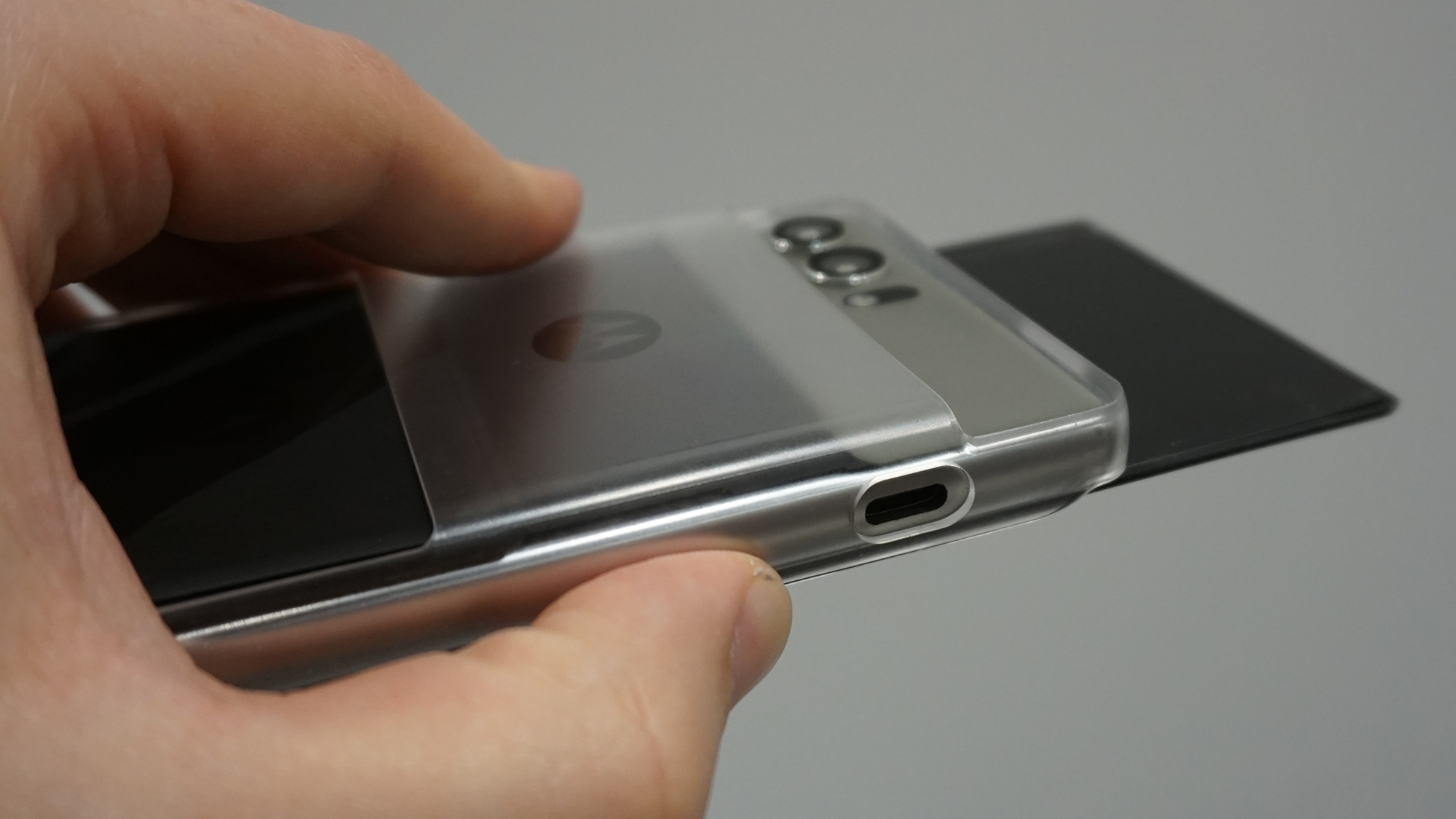
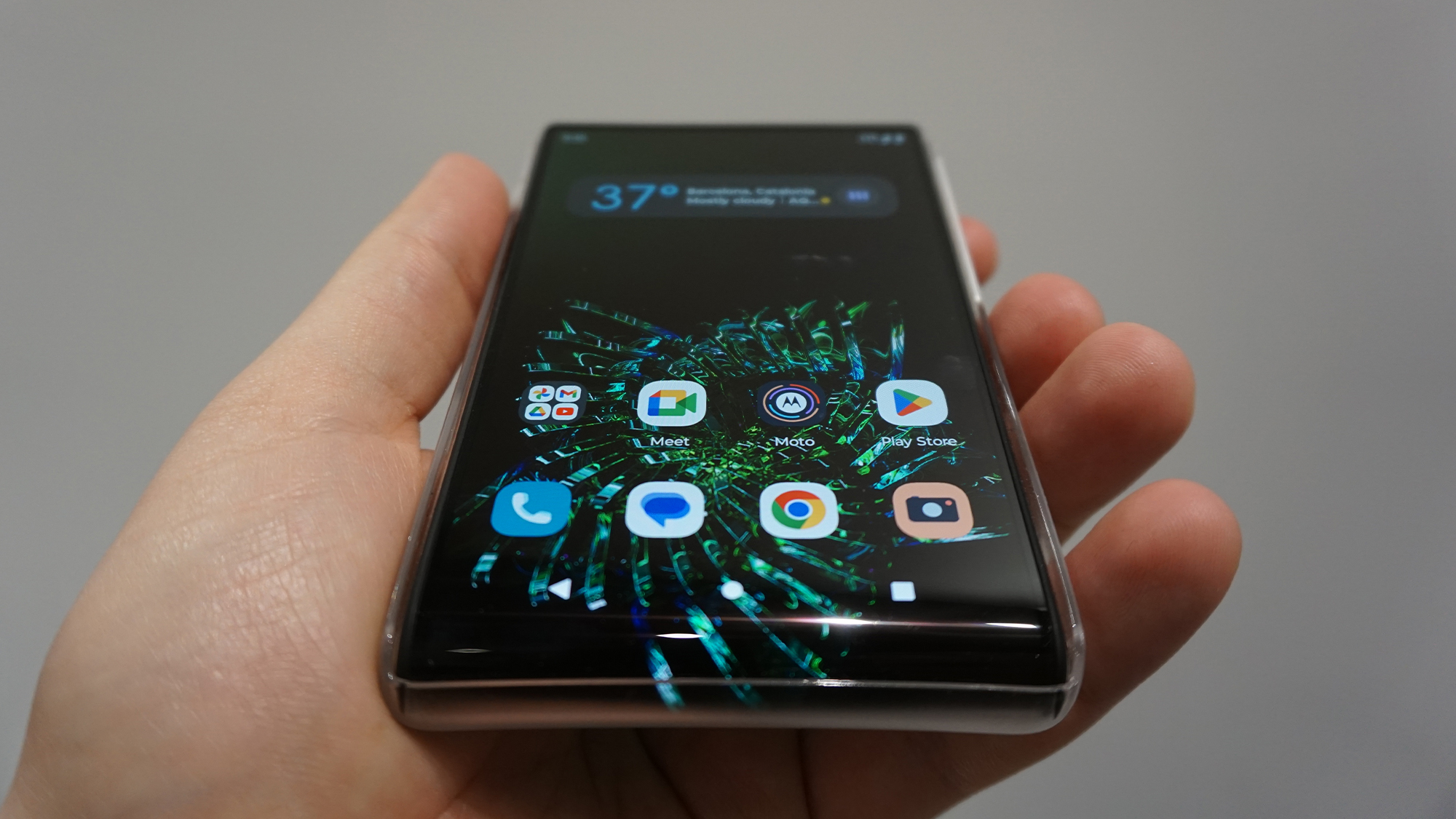
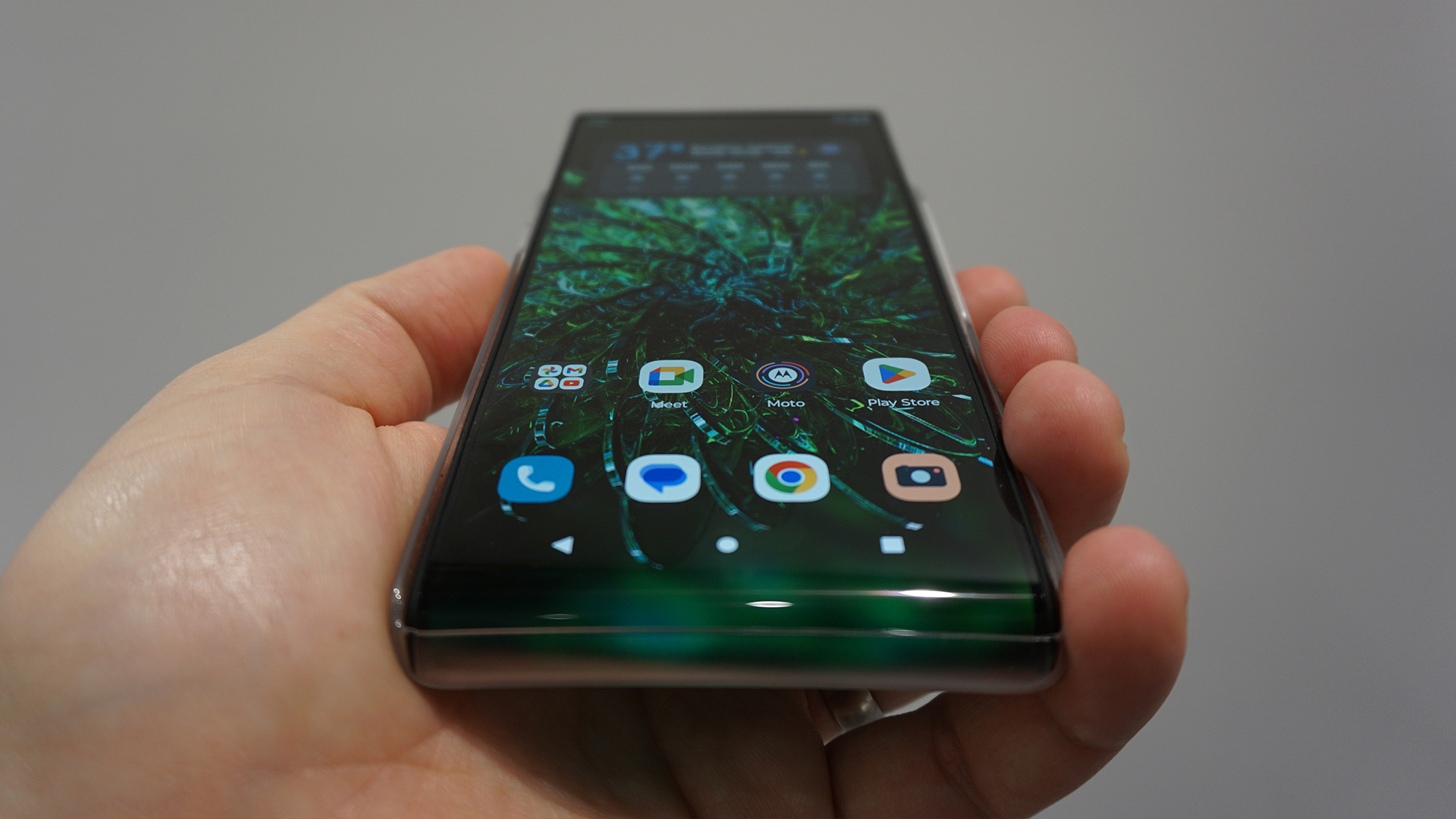
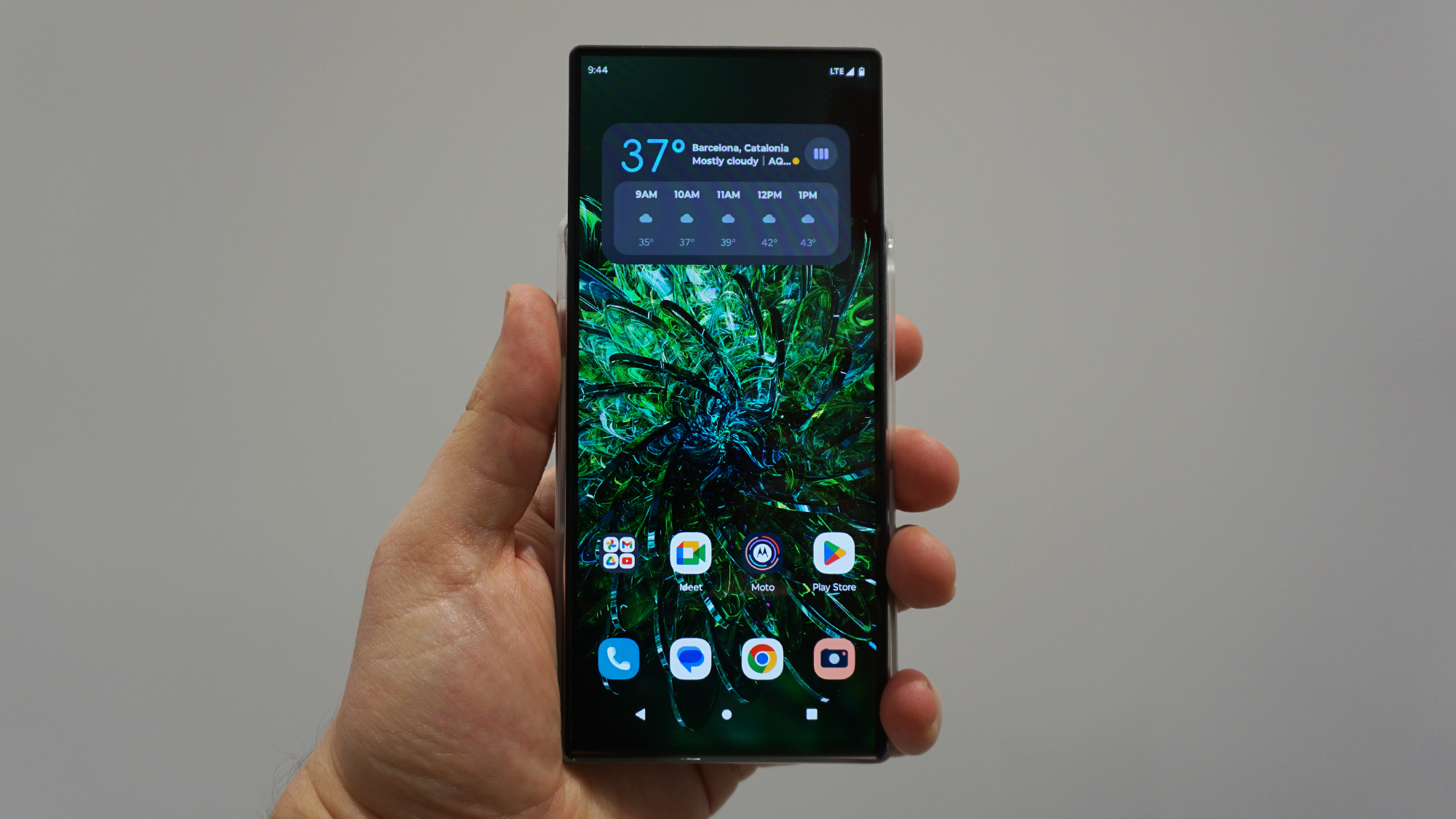
One of the most elegant aspects of the rollable, based on the hands-on time we spent with it, was that unlike perhaps every foldable (aside from Huawei’s Mate Xs 2), is doesn’t need a smaller secondary display to convey information to the user when closed.
Unlike the Oppo X 2021 rollable concept from a couple of years ago, Motorola’s interpretation not only expands vertically as opposed to horizontally, but it also doesn’t hide the portion of the display that isn’t visible when looking at the front of the phone.
Instead, the lower portion of the display is sent around to the back of the phone’s body, where it can still be seen. It now acts as a secondary rear display, without the need for an additional panel, as on the Razr and many of the other best foldables around.
In this mode, with the phone face-down, that rear display can be used to show notifications, incoming calls or a clock. When using the camera, it can double as a rear-facing viewfinder or show animated faces to capture a subject’s (read: child’s) attention and make sure they’re looking in the right direction.
In another stroke of genius, the front camera and earpiece are completely hidden in normal use, with the display rolling down, rather than up, ever so slightly to reveal both, as needed. This works whether you’re snapping a selfie or taking a call, not unlike Honor’s Magic 2 and Xiaomi’s Mi Mix 3 from late 2018.
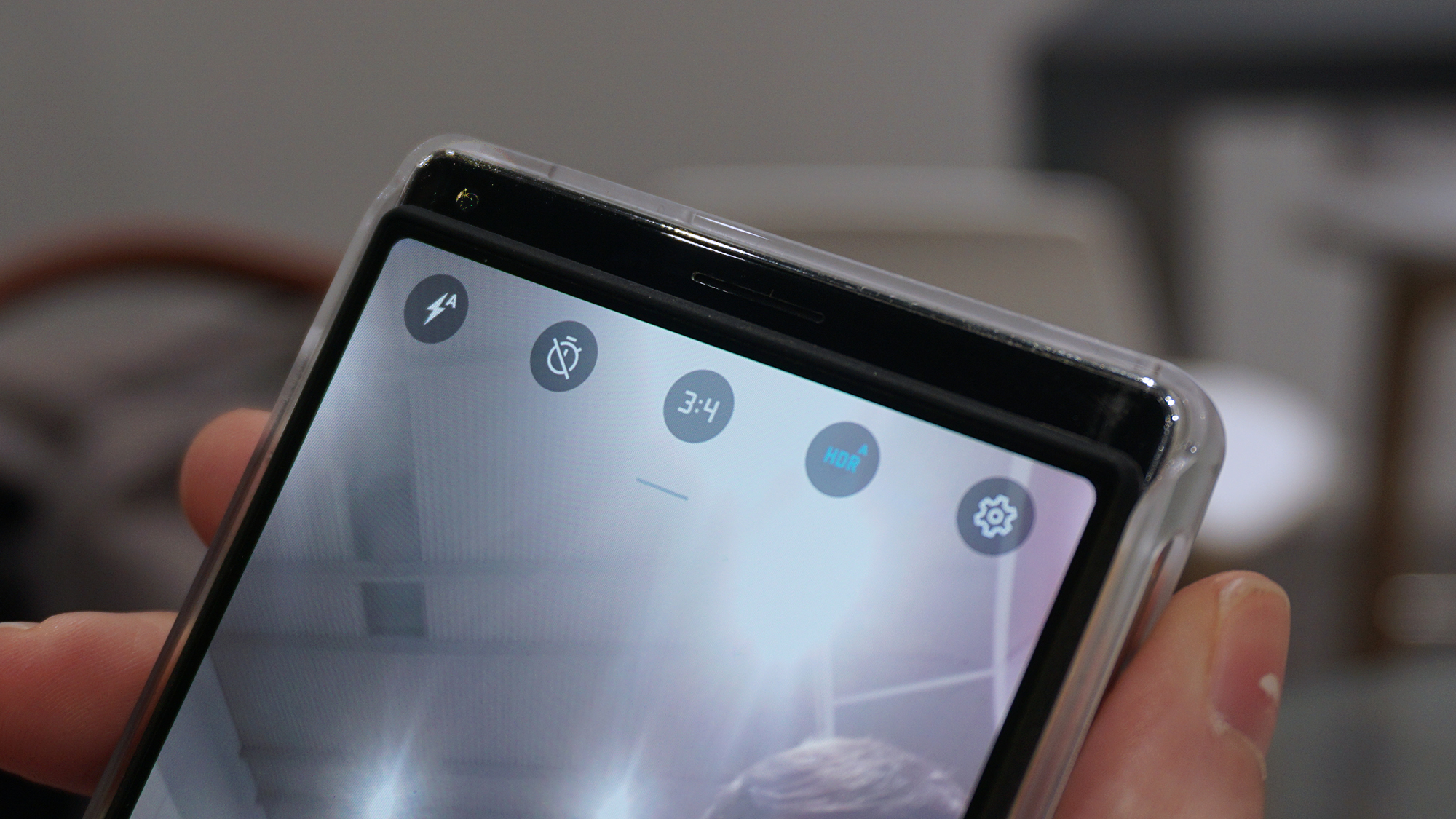
While a double-press of the side button forces the phone’s display to expand and contract, we were also shown a couple of use cases where Motorola’s rollable can automatically adjust of its own accord.
If you’re watching a landscape video in portrait and then tilt the phone sideways, the display will start to expand to offer up a larger viewing experience. Similarly, while you can scroll through emails or messages in the contracted 5-inch display mode, if you tap to bring up the on-screen keyboard, the display will instantly rise up to allow more room for both the keyboard and the content together. Smart.
Even though this phone is never going to make it to retail in its current form, no Motorola would be complete without Moto Actions, meaning you can also quick-start the camera with a double twist of the wrist, while a karate chop turns on the flashlight.
Is there really a future for rollable phones?
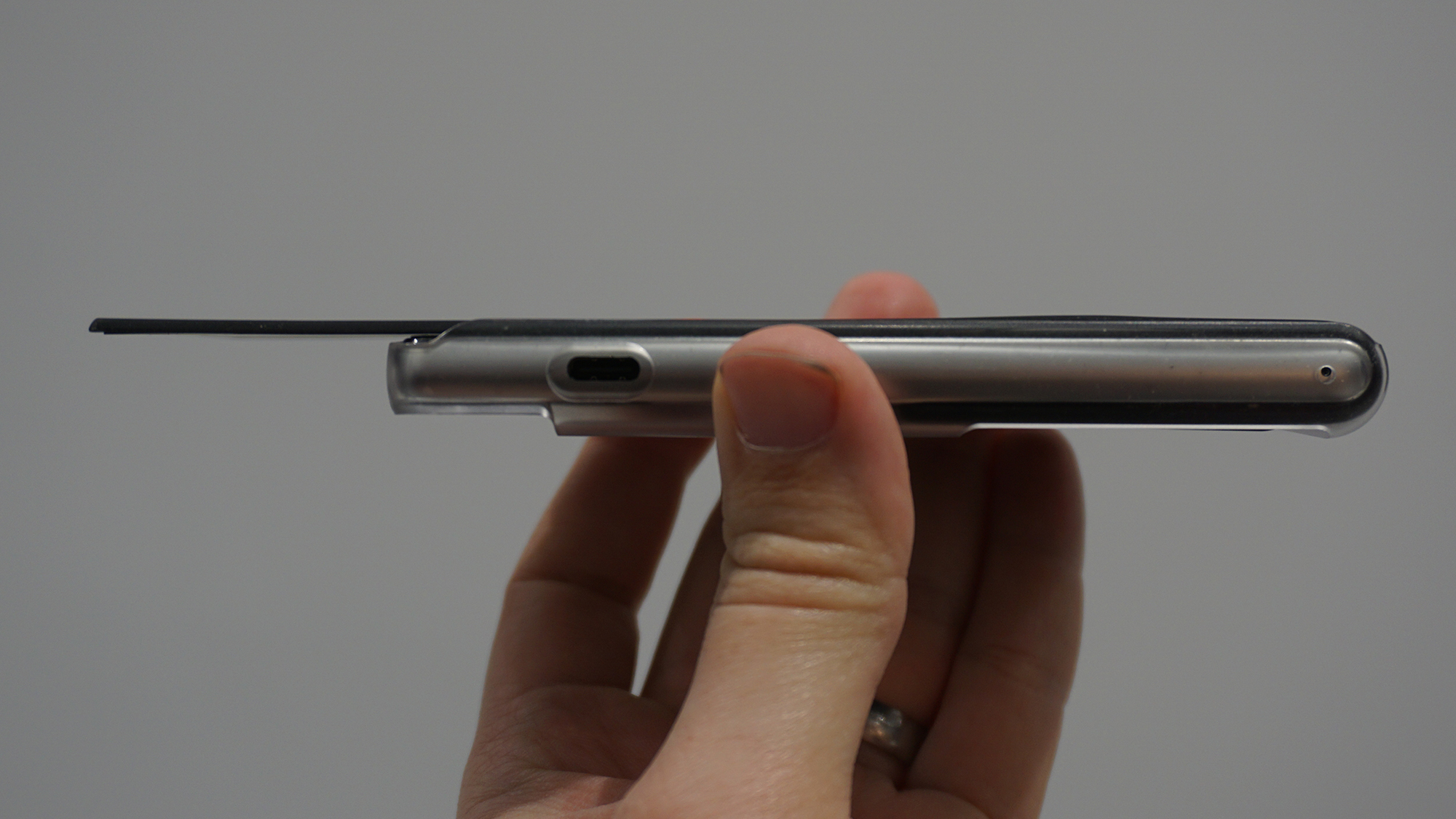
Naturally, for all the conveniences this phone’s unique form factor and Motorola’s user experience bring to the table, there are obvious caveats to the concept as it stands.
In profile, the rollable’s body is thick by modern smartphone standards, while the additional display that pokes past the top of the body is incredibly thin and looks breakable.
Then there’s the motorized mechanism at work inside that thick body, which powers the expanding and contracting display. In order to operate as a true consumer-ready smartphone, this system would need to be able to withstand hundreds, perhaps thousands of repetitions over its lifetime.
While MWC 2023 played host to a lot of new foldables, from the Tecno Phantom V Fold, to the Honor Magic Vs, to OnePlus’ confirmation that a premium foldable is on the cards in the near future, it’s at least nice to know that other form factors are in the works, even if they’re yet to prove themselves on the market.
stereoguide-referencehometheater-techradar